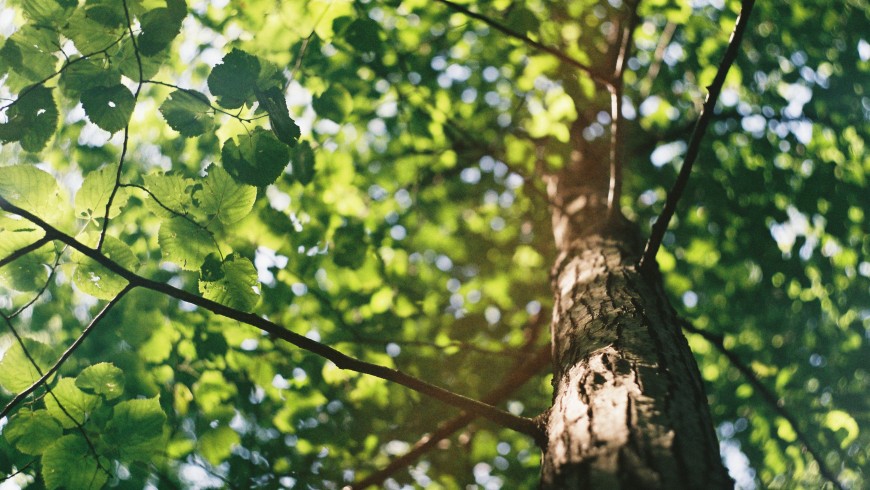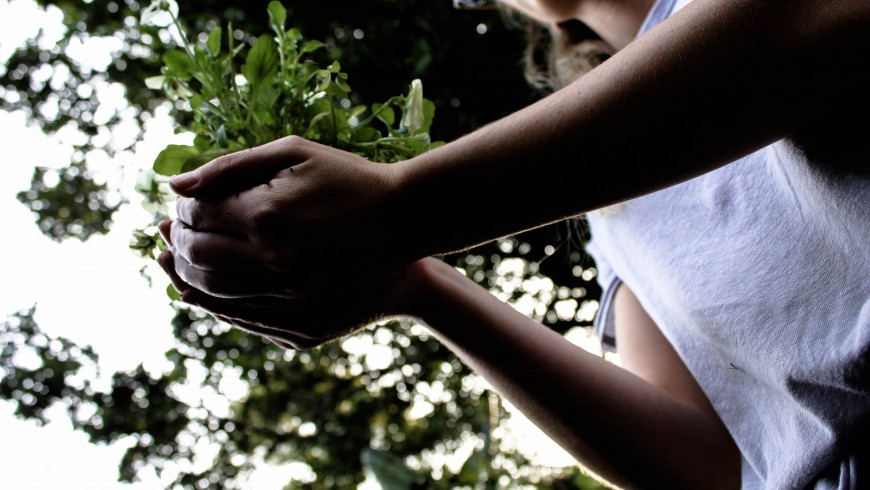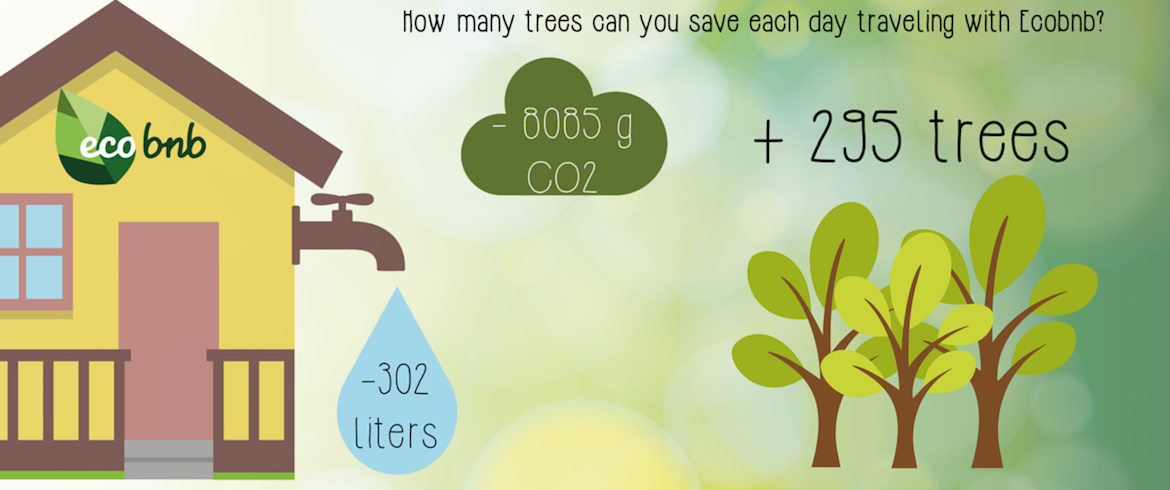Traveling with Ecobnb, you can offset your carbon footprint. So you can help fight global warming. By choosing an eco-sustainable accommodation about 8 kg of CO2 emissions per person per night in an eco-BnB, can be reduced – the equivalent of planting 295 new trees (according to HowManyTrees). At the same time, by choosing an eco-sustainable accommodation facility, you can reduce the waste of water and energy, produce less waste, help to make our planet greener, and – of course – you can support people who are investing in a better world.
“Be the change you want to see in the world.” (Gandhi)
A Double CO2 Compensation
1. How many trees can you save by traveling with Ecobnb
Thanks to the estimates of our partner howmanytrees, you can find out how much CO2 you are compensating for each night in an Ecobnb. Producing less CO2 is the equivalent of planting new trees. This is what we call passive compensation.
For every night in an Ecobnb, you can save up to:
- 8 KG of CO2
- 302 liters of water
- 295 Trees
Saving CO2 emissions is equivalent to planting new trees while increasing emissions is equivalent to cutting them (see the complete study).
2. The project of planting new trees locally
From 2020, every time you travel with Ecobnb you can choose to donate a small contribution during the booking phase to active compensation projects, namely the planting of new trees. In this way, together we can also engage in the effective planting of new trees.
Where will the new Ecobnb trees be planted? Locally, in Europe, choosing native species to cultivate according to organic methods, from the network of Ecobnb’s farmers. Organic farms and ecological farmhouses that you can also visit in person. An important compensation project that we will update you soon … stay tuned!

On the Ecobnb homepage, we update the total number of trees saved thanks to your reservations in the eco-friendly BnBs, and to the new trees planted locally.
Planting new trees locally, why is it important?
To neutralize our CO2 emissions locally it is necessary to plant new trees close to the emission sources, following the indications of the Kyoto Protocol. The trees, because absorbing carbon dioxide (CO2) during the photosynthesis process, fix the carbon in their own biomass and in the soil (which become real carbon reserves on the earth’s surface), and release oxygen. For this reason, it is preferable to plant the new trees near the sources of pollution rather than in areas on the other side of the globe. For example, planting new trees in a polluted plain near our big cities is a choice that contrasts global climate change, but at the same time can re-naturalize the place, making it more livable.
We believe that compensating CO2 emissions locally, planting new trees here and now, has a more powerful effect on CO2 reduction than projects in remote areas of the world.

The benefits of trees
The beneficial effects of the trees are many, we never tire of remembering it, here are some:
- CO2 REDUCTION: each plant captures carbon dioxide (CO2) – the main greenhouse gas – from the atmosphere, helping to reduce global warming.
- CLEANER AND BREATHABLE AIR: trees act concretely as a filter on air quality, converting CO2 into oxygen, and avoiding the spread of harmful gases.
- BENEFIT EFFECTS ON HEALTH: scientific studies show that our health, both physical and mental, depends on the presence of greenery in the places where we live.

The farmers of the Ecobnb network
Do you want to know the faces and stories of the Ecobnb’s farmers, which will help us promote CO2 compensation in an ethical, local, supportive and traceable manner?
Keep following us, we’ll introduce you soon!

